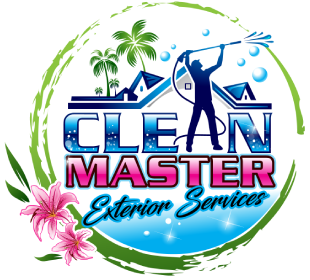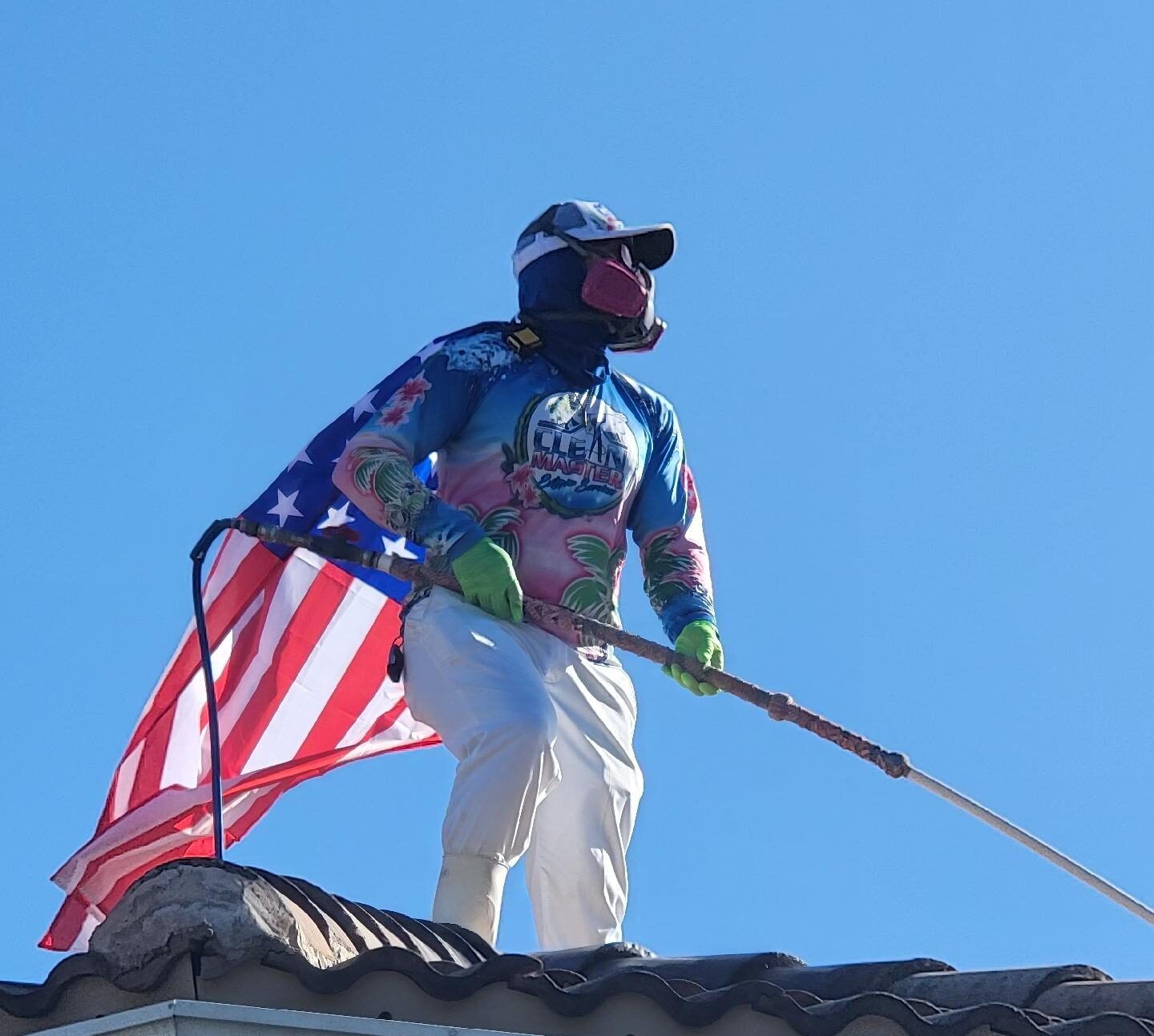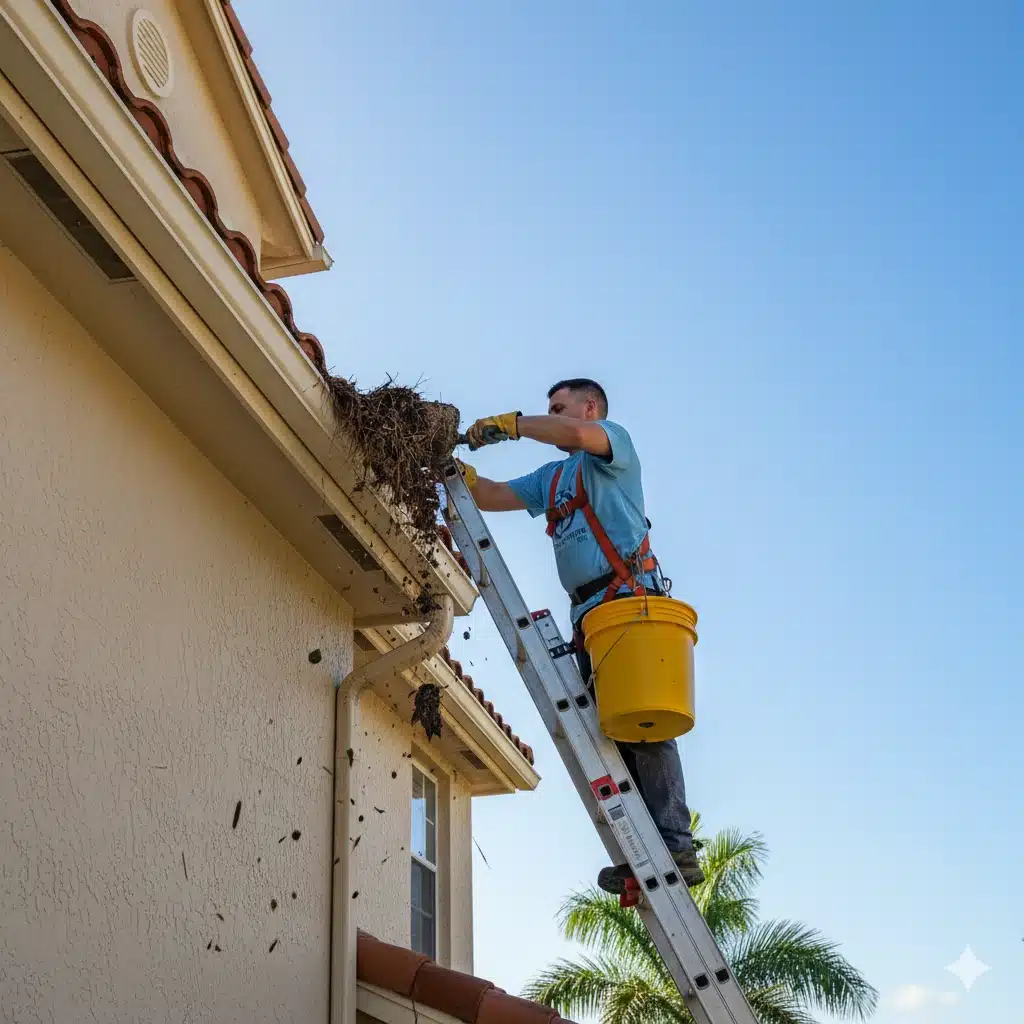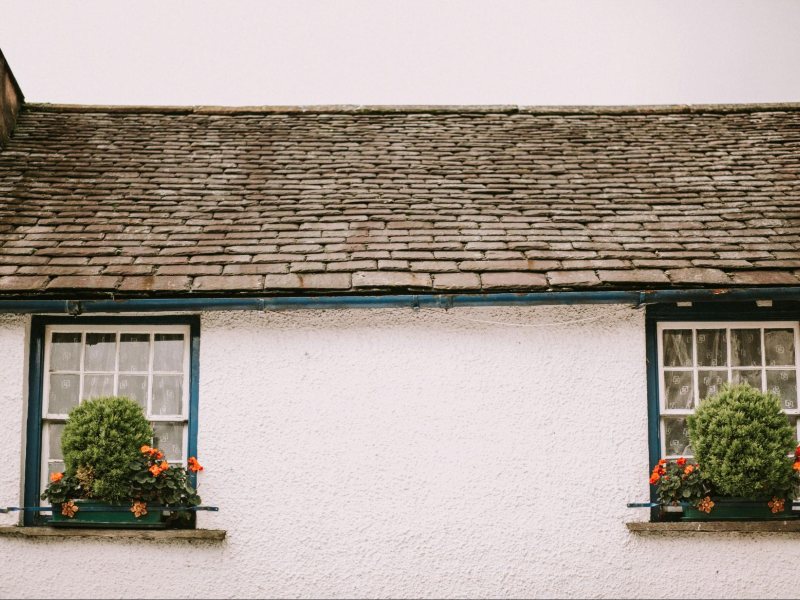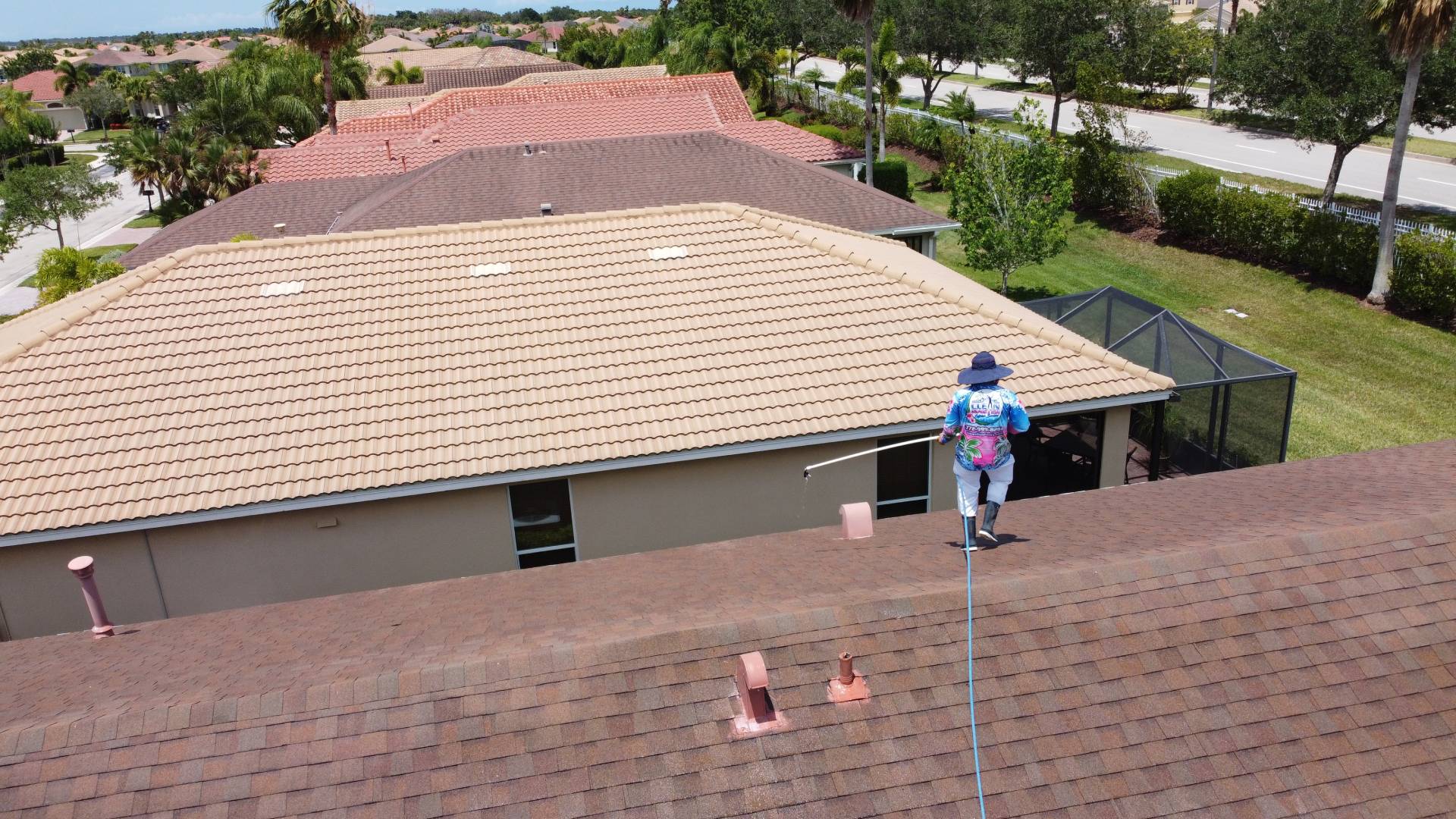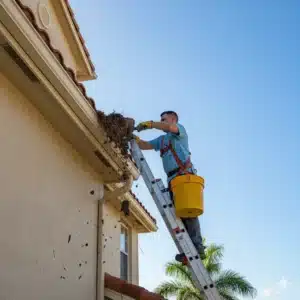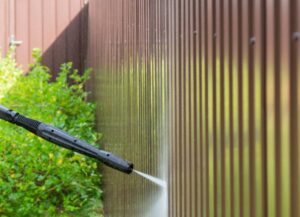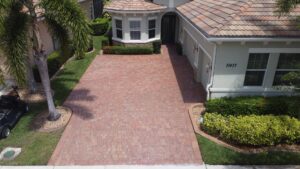Introduction to Roof Cleaning
Soft washing is a gentle yet powerful roof cleaning method that uses low pressure and biodegradable cleaning solutions to remove dirt, mold, algae, and organic matter from the roof surface.
Unlike high-pressure washing or power washing, soft wash roof cleaning prevents roof damage and protects delicate plants and grass surrounding your home.
This cleaning method is ideal for cleaning roofs made of shingles, tiles, or other roofing materials, as it lifts and removes stubborn stains and organic growths like Gloeocapsa magma, which causes black streaks.
Using a sodium hypochlorite solution, soft washing work penetrates deep into root systems, killing moss, bacteria, and mildew without harming the environment.
Because soft washing relies on cleaning chemicals instead of force, it prevents damage, extends roof life, and offers long-term benefits that save money while maintaining roof quality and appearance.
The Soft Wash Roof Cleaning Process
The soft wash cleaning process is simple but highly effective for removing organic contaminants, soil, and debris from any roof surface.
- Apply the Cleaning Solution: The roof is sprayed with a mixture of water, sodium hypochlorite, and surfactants. This cleaning solution breaks down organic materials, including algae, moss, and mold.
- Allow to Sit and Penetrate: The solution is left to sit on the surface, allowing it to penetrate and kill root systems of organic growths, ensuring they don’t regrow.
- Gentle Rinsing: The roof is rinsed with low pressure, washing away loosened dirt, contaminants, and chemicals, leaving the surface clean and bright.
- Protection of Surrounding Areas: Technicians protect plants, grass, and delicate landscaping to avoid harm from runoff.
- Inspection and Drying: Once the roof is cleaned, it is allowed to dry, revealing a restored and protected surface.
This process delivers powerful cleaning results without the risk of damage typically associated with high-pressure or power washing.
Advantages of Soft Wash Cleaning
Soft wash cleaning offers numerous advantages over traditional pressure washing methods:
- Prevents Roof Damage: The low-pressure method protects roofing materials and shingles, unlike pressure washing, which can cause cracks or leaks.
- Removes Black Streaks: Eliminates gloeocapsa magma, mold, and algae that cause discoloration, restoring the roof’s original color.
- Kills Organic Growths: Destroys moss, fungi, and bacteria at the root, stopping regrowth and preventing long-term structural damage.
- Protects Plants and Grass: The biodegradable solution ensures soft washing won’t harm plants, roots, or delicate landscaping.
- Enhances Roof Quality and Longevity: Regular soft wash roof cleaning improves overall roof durability, helping it withstand rain, sun, and organic buildup.
- Saves Money Over Time: By reducing buildup and wear, homeowners spend less on repairs and replacement costs.
This method enhances both the appearance and performance of your roof while providing lasting protection.
Pressure Washer Alternatives
Soft washing is a smarter and safer alternative to pressure washing or high-pressure washing.
Where pressure washing relies on brute cleaning power to blast away debris, soft washing uses chemicals to break down and lift contaminants from the surface.
- Unlike pressure washing, soft washing uses low pressure and controlled cleaning chemicals to prevent roof damage.
- Unlike high-pressure washing, it avoids water intrusion under shingles or tiles, which can lead to mold and rot.
- Power washing may clean quickly, but it often harms roofing materials, while soft washing achieves a deeper clean with no risk to your property.
Because soft wash cleaning uses biodegradable cleaning solutions, it provides safe, effective results that protect both your roof and the environment.
The Importance of Soft Wash Your Roof
Performing regular soft wash roof cleaning is crucial for maintaining your home’s value and appearance.
Organic materials like moss, algae, bacteria, and mildew thrive on wet roof surfaces, leading to buildup, stains, and eventual roof damage.
- Soft washing removes stubborn stains and prevents organic growths from returning, extending the lifespan of your roofing materials.
- By cleaning roofs properly, you maintain their quality, prevent costly repairs, and enhance the overall aesthetic of your property.
A clean roof not only looks great but also reflects sunlight more effectively, improving energy efficiency and protecting your investment in the long run.
Wash Roof with the Right Equipment
To achieve the best results, soft washing work requires the right tools and safety measures:
- A pressure washer with low-pressure nozzles ensures safe and even rinsing.
- A professional soft wash system mixes sodium hypochlorite, surfactants, and water in the correct ratios for maximum effectiveness.
- The solution is typically sprayed on the roof, allowed to sit, and then rinsed thoroughly.
- Protective gear such as gloves, goggles, and respirators, ensures safety when handling cleaning chemicals.
- Barriers or rinsing shields protect delicate plants, grass, and roots from overspray.
Using the proper method, equipment, and mixture ensures your roof cleaning process is safe, thorough, and environmentally responsible.
Conclusion
In summary, soft washing is a proven, low-pressure cleaning method that delivers powerful results without the harm caused by pressure washing.
By using biodegradable cleaning chemicals, it effectively removes organic materials, stains, and bacteria, leaving your roof surface clean, bright, and protected.
Regular soft wash roof cleaning prevents buildup, the spreading of organic growths, and costly roof damage, ensuring your home stays beautiful and well-maintained.
For best results, consider scheduling professional soft washing services that use proper cleaning solutions, equipment, and techniques to enhance roof quality and extend its life—while saving money in the long term.
